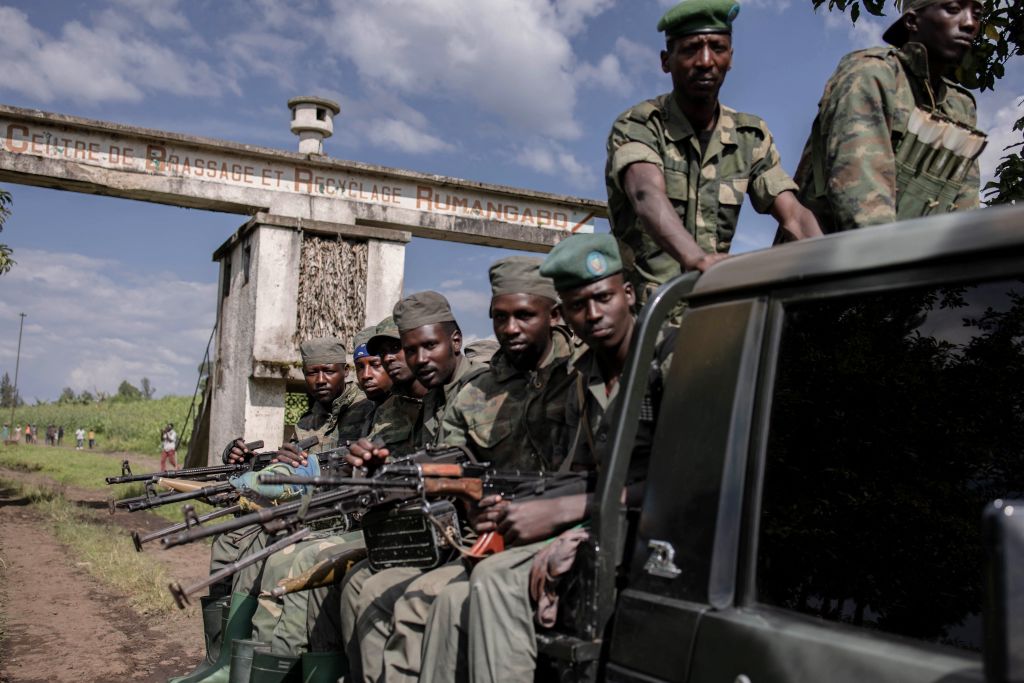ADF STAFF
Violence in the eastern region of the Democratic Republic of the Congo (DRC) continues to rage, as rebels are trying to exploit ethnic divisions.
Recent reporting by international advocacy organization Human Rights Watch (HRW) revealed attacks by the group known as the M23 Movement were intended to exacerbate ethnic tensions between Hutu and Tutsi.
HRW senior researcher Thomas Fessy, who wrote the February 6 report, said it is a calculated move on the part of the M23.
“The M23 is mainly led by Tutsi, and they’ve been increasingly brandishing the ‘identity card,’ basically saying, ‘We’re here to protect the Tutsi community, which has been targeted,’” he said in an interview with France 24 television.
“Even though there had been underlying discrimination over the years and there’s a history of discrimination and question about identity in the region, this doesn’t justify in any way the war crimes that the rebel group is committing in North Kivu.”
Hundreds of thousands have fled their homes, including tens of thousands who have sought the relative safety of informal refugee camps in the hillsides of Kanyaruchinya, overlooking North Kivu’s capital of Goma to the south.
In late 2022, the United Nations and multiple rights groups investigated massacres in the villages of Kishishe and Bambo, which lie in the predominantly Hutu area of the Bwito chiefdom and are near the DRC’s border with Rwanda.
M23 rebels summarily executed at least 171 civilians, according to the U.N. In its report, HRW said M23 fighters killed 10 more civilians while searching for members of the area’s self-defense militia.
Another rights group, Amnesty International, reported on February 17 that M23 rebels raped at least 66 women and girls, primarily in Kishishe around the time of the massacres.
HRW’s report also documented multiple instances of forced recruitment of civilians into the ranks of the M23 as fighters on the frontlines, porters and camp workers.
“In different parts of territory in North Kivu, they’re basically leaving behind a growing trail of war crimes,” Fessy said.
M23, a Tutsi-led rebel group that had been dormant for 10 years, reemerged in November 2021 with claims that the DRC had ignored a promise to integrate its fighters into the army.
A rebel offensive in 2022 included a series of attacks on Congolese forces, as M23 took stretches of land in North Kivu moving towards Goma.
The DRC has accused its neighbor Rwanda of arming and supplying M23, a claim supported by independent U.N. experts but denied by Rwanda.
In late 2022, the East African Community (EAC) created a regional force intended to stabilize eastern DRC. Much of the force has deployed in peace enforcement operations, but it has yet to receive authorization to engage M23.
During a February 17 summit in Addis Ababa, EAC leaders called for a ceasefire and demanded that all armed groups withdraw from eastern DRC by the end of March.
Days later, however, the fighting reignited around Kitshanga, about 100 kilometers northwest of North Kivu’s capital of Goma.
“They are rebels, they don’t care about summits,” local civil society leader Toby Kahangu told Agence France-Presse.
Experts are warning that stoking ethnic tensions in eastern DRC would only intensify the violence and brutality.
As a result of recent fighting, hundreds of Tutsi civilians around Kitshanga have fled out of fear of reprisals. They told HRW that local militias use increasingly hostile rhetoric against them.
“The more M23 rebels attack and the more they advance, the more we’re being harassed by other communities who link us to them,” a Tutsi community leader told HRW.
Patrick Muyaya, a DRC government spokesperson, has denied any collaboration between the Congolese Army and self-defense militias.
“It [the situation] is taking on an ethnic dimension in Bwito and Masisi,” a high-ranking military officer told HRW. “It’s getting worse.”

